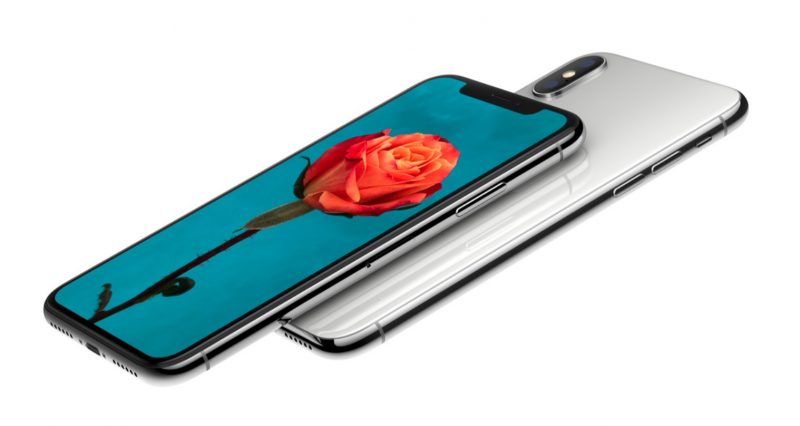The new iPhone X’s new A11 Bionic processor is doing wonders in benchmarking, outclassing the iPad Pro and more impressively, beating the latest MacBook Pro at multi-core performance. As of yet, no Qualcomm processor has managed to achieve such heights, leaving the next-gen iPhone in a class of its own.
While the Geekbench scores for the 10.5-inch iPad Pro average at 3887 and 9210 for its single and multi-core tests respectively, the iPhone X beats both with ease, sitting at an average of 4169 and 9836.
There were many instances in which this score would peak in individual tests according to MacRumours, resulting in scores as high as 4274 and 10438 respectively, which becomes all the more impressive when comparing it to the 13-inch MacBook Pro. The highest-end MacBook scored 4592 and 9602, suggesting that the new A11 processor falls slightly short of the single-core performance but dominates the multi-core, suggesting better multi-tasking capabilities.
Using the same testing methods, the current standard in high-end Android phones, the Snapdragon 835, nets an average of 2000 for single-core and 6000 for multi-corer, which was dominated by last-years iPhone 7, with its A10 chipset resting easy at 3327 and 5542.

Geekbench’s John Poole believes these tests to be real and that the A11 sits at a higher 2.5GHz per core than the previous A10’s 2.34 GHz.
These are just raw testing methods, however and while Geekbench scores have translated well with iPhones in the past, analyst Dan Matte believes that they should be ignored and that improvements are “relatively modest.”
“If you subtract out the efficiency gains from removing 32-bit support, you're left with maybe very roughly a 15% improvement in CPU IPC for the big cores, assuming equivalent clocks to the A10. Apple could have pushed performance and efficiency further, if not for 10FF being really bad. The era of the hyper Moore's Law curve in mobile is officially over, in my opinion, though maybe the A10 already signaled that. It's all rough sledding from here on out, based on the state of foundry challenges.”
KitGuru Says: I am not an iPhone person but the sheer data is impressive, even if it is only on paper for now. I can’t wait to see the real-life testing when the iPhone X starts shipping in November. Do you plan on getting an iPhone X?
 KitGuru KitGuru.net – Tech News | Hardware News | Hardware Reviews | IOS | Mobile | Gaming | Graphics Cards
KitGuru KitGuru.net – Tech News | Hardware News | Hardware Reviews | IOS | Mobile | Gaming | Graphics Cards



In the future we’ll all have phones instead of PCs and a screen, mouse, and keyboard on location? Or projectable touch screens? Most office work doesn’t need that much power after all.
well Microsoft have shown the way with the lumia 950 and 950XL. You just dock this and have a ARM version of windows.
Imagine now that the CPUs are getting better and the full blown windows support ARM CPUs how easier it will be to have a phone that you can dock on a monitor, mouse, keyboard setup and have a full working PC.
I wonder why apple haven’t done this already with the iPhone X, I mean look at those numbers, this cost as much as a laptop but perform as one as well, why now to utilize this power with a dock or a 2 in one laptop dock like the one asus made a few year back?
Oh someone is about to get back in RISC 😉
I remember reading somewhere that Apple was frustrated by the slow progress in CPUs from intel (AMD was not a problem before ryzen, why intel to care to give anything better than 5-10% more power?).
And that they had made a prototype macbook with arm cpu, but back then the tech was just not ready for this. Maybe now we can see this happen.
If Steve was alive I’m sure he could have pushed to have this CPU in the laptops within 2017 giving the finger to intel. Cook is more diplomatic and will probably introduce this change slow to have a more soft break up with intel.
Geekbench favours RISC processors really heavily. Sure the A11 is extremely impressive and is on a class of its own, but comparing it to any modern day (>dual core) CPU isn’t bright. RISC is RISC. It still has way less functionality.
Macbook is often a design laptop, so CPU power is not the main concern. You need a lot of RAM and GPU power as well. Without that power, even basic photo editing becomes a hassle, let alone 3D design.
But for most general office purposes, I don’t see why a 256GB phone with a decent OS would not suffice.
But basic photo editing in most major programs (photoshop, affinity photo and others) doesn’t use the GPU. Adobe have tried and failed with beast GPUs like 980Ti perform worst than just leaving the CPU do the job (even if have a low end CPU like i3). You can confirm yourself in adobe forums.
This is why even basic macbooks where able to be used from graphic designers with intel integrated crap.
As for the 3d side of design you sure limit your workflow a lot by working on a chopped down gpu that is usually found in laptops, you need a serious workstation to get the job done which can give you strong CPU for rendering and strong GPU for live view and again to help in rendering.
So basically a docked iphone can be as good as an entry macbook at the same price in most jobs, even you do light 3d on a macbook you will go for a higher model. So I believe that yes we can compare the entry macbooks with the iphonex in what it can be used.
I haven’t looked into this in years to be honest, so no surprise my state of info is out of date.
Anyway, it still isn’t suitable as a PS replacement; you’d need to bring a decent sized high quality screen, and other tools, so you might as well get it all compact into a Macbook (or other laptop brand): lots cheaper and more convenient.
And as for replacing most jobs; that’s what I’ve been saying the whole time.